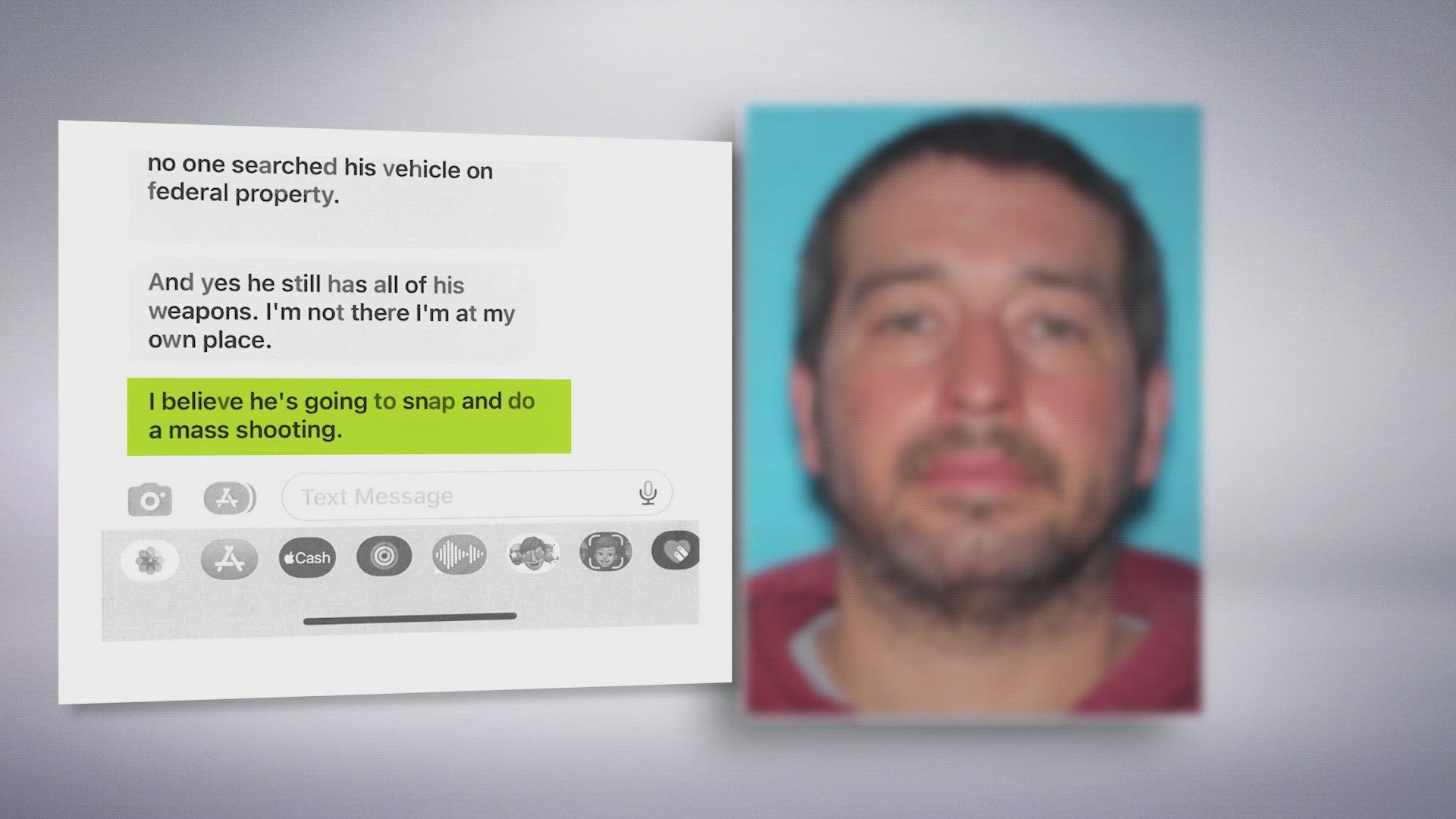BATH, Maine — Documents the Sagadahoc County Sheriff's Office released Wednesday detail how many warning signs law enforcement officers received about Robert Card and how they handled them.
Sheriff Joel Merry said his deputies never made face-to-face contact with Card, despite those warnings and alerts from his own deputies that Card was threatening to commit a mass shooting.
On May 3, Card's family contacted the sheriff's office. His ex-wife and son warned a deputy that Card allegedly had 10 to 15 firearms and was acting "angry and paranoid." His family was so worried about Card's behavior that they asked police to not tell Robert they contacted them and suggested contacting his Army Reserve supervisors.
When a deputy contacted Card's reserve unit leaders, they told the deputy they were concerned about his recent decline in mental health. The family also warned that deputy about Robert's angry rants to shoot someone.
A little more than two months later, on July 15, Card traveled with his Army Reserve Unit to Camp Smith in New York for annual training, the Army told NEWS CENTER Maine. At the time, his fellow unit members say Card made similar paranoid statements that people were calling him a pedophile in a narrative and text messages those unit members later gave to sheriff's deputies.
Those unit members and the Army Reserve say they took Card to a hospital on base for help. The Army said two days later, Card was at a different, civilian sector mental health hospital, Four Winds Hospital in Katonah, 20 miles away from the training site.
His unit leaders told deputies Card stayed at Four Winds for 14 days and was released.
Alcohol, Tobacco, and Firearms records show in August that Card tried to buy a silencer for a firearm but was denied after he filled out a federal firearm transaction form saying he had been committed to a mental health hospital.
Sagadahoc County Sheriff Joel Merry said they were never notified of this and that they would only be notified if he was successful in purchasing a firearm or suppressor.
On Sept. 15, members of the Army Reserves asked Sagadahoc County to check on Card's wellbeing. That's when deputies learned Card had made threats while he was training in New York.
Unit members say Card punched his fellow unit member, told him he had guns, and threatened to shoot up the drill center in Saco and other places. That unit member texted his unit leader saying he was worried Card was going to "snap and commit a mass shooting."
That's when Sagadahoc County deputies put out a "File 6" notice -- an attempt to locate teletype -- warning that Card was armed and dangerous, was suffering from psychotic episodes, made threats to shoot up the Saco center, and had mental health issues, including hospitalization. That notice warned anyone who finds him to use extreme caution.
The next day, Sept. 16, a Sagadahoc deputy went back to Card's home and asked a Kennebec County deputy for backup. They said they heard him moving around inside but would not answer the door.
The following day, Sept. 17. that deputy talked to Card's brother about getting the guns away from Robert. His brother told the deputy he and Card's father would work to ensure Robert could not access any guns. The deputy told the family to call them if they thought Card was a risk to himself or others.
"After that, we did not hear anything from the family, from Mr. Card, nor was there anything else," the sheriff said.
Merry said if they had made face-to-face contact with Card, they might have been able to take him into protective custody.
"Based on the information we had, we would have been able to do an assessment on him. We weren't able to do that. So, we had to rely on whatever else we could. And that was that communication with the family and with the [reserve] unit and those who knew him," Merry said.
One month later, deputies canceled the File 6 notice. One week later, Card drove to Lewiston and shot and killed 18 people and injured 13 others.
"I certainly wish it would have played out much differently. I do. And that's part of what I have to do to think about, " Merry said. "I think about, 'What could we have done? What should we have done? Was there anything different we can do? And how do we respond to this in the future?'"
Merry said he thinks communication between the local, state, and federal agencies could be better.

